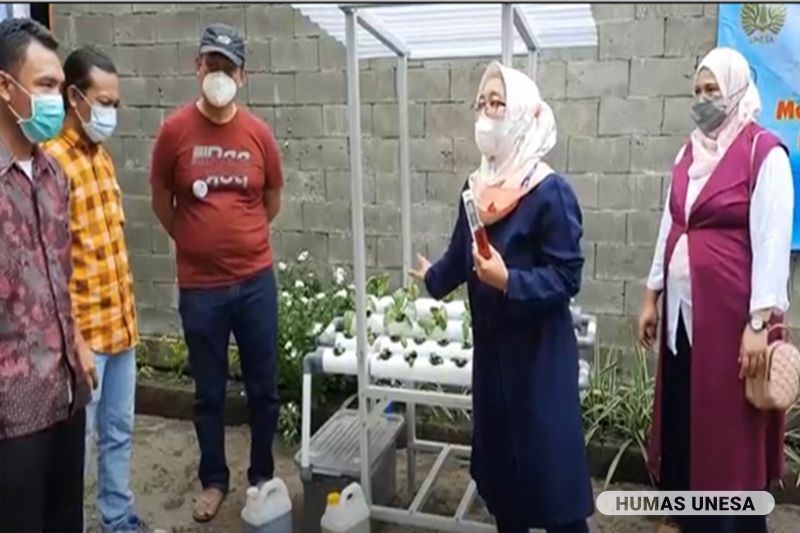
www.unesa.ac.id
Unesa.ac.id, SURABAYA-Higher education human resources are not only tasked with giving lectures in the classroom, but also have to go out in the field to move the community towards empowerment. That's what the Mechanical Engineering lecturer, Faculty of Engineering, Surabaya State University did. They provide training on hydroponic plant cultivation techniques to the community in Tulungrejo Village.
The training will be held in September 2021 at a partner location, Trust English School while still adhering to health protocols. Until December 2021, the team is still providing regular assistance. The Chairperson of the Activities, Tri Hartutuk Ningsih, S.T., M.T., said that the training was packaged in a simple way using the PALS (Participatory Action Learning system) method, both theoretical and practical.
At first, residents were taught to directly make or install a hydroponic framework as needed. Then, get training on plant cultivation starting from sowing seeds, transferring seeds from the nursery to the containers that have been installed, to how to measure and adjust the pH of water that is suitable for each type of plant. “The training goes to the planting process and we accompany it until the harvest process. Our program will be phased in the future," he said.
To make it easier for residents, the lecturer team also provided several hydroponic components that were installed by themselves. Then there are also seeds and some materials for measuring the pH of the water. Tri Hartutuk Ningsih added that the training was aimed at increasing the understanding and skills of residents in terms of plant cultivation using hydroponic techniques.
According to him, these skills need to be owned by the community along with the narrowing of agricultural land. In addition, not all communities have sufficient land to plant certain crops. "With a planting system like this, residents can cultivate whatever land is limited," he said. "Besides, planting vegetables can be done in your spare time between busy schedules," he continued.
He hopes that, through the training, the residents' enthusiasm and enthusiasm will emerge in growing hydroponic vegetables for their daily needs at home. That way, the needs of the family can be fulfilled and of course the environment becomes beautiful and healthy.
"Hopefully with this training there will be an increase in food self-sufficiency, people will apply hydroponics with simple ingredients from the environment, the results of which are to meet the daily needs of the household, and the more is sold to increase the entrepreneurial spirit in the midst of declining service sector employment during the current COVID-19 pandemic," " he said. In the training, Tri Hartutuk Ningsih, S.T., M.T was not alone. He was accompanied by team members consisting of Heru Ariizal. S.Pd., M.M., M.Pd., Aris Ansori, S.Pd., M.T., and Ika Nurjannah, S.Pd., M.T. [UNESA PR]
Author: Hasna
Editor: @zam*
Share It On:






